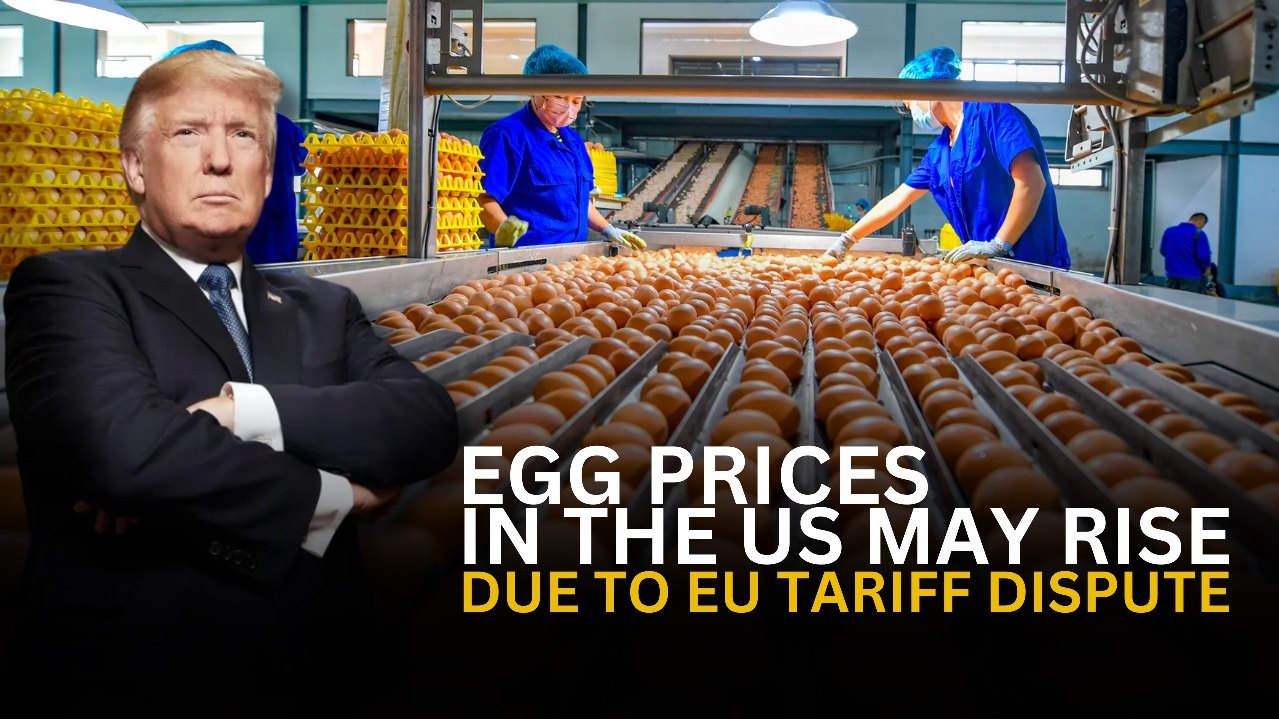

Walking on Eggshells: Tariffs, Trade Wars, and European Eggs
Just as talk of trade tensions and tariffs heating up between the US and the European Union, a real-world problem – a shortage of eggs in America – is forcing an awkward reach-out across the Atlantic. The brief nicely illustrates why trade wars aren't always as straightforward as they might seem.
Trump's Tariff: A Quick Refresher
Imposing tariffs – essentially taxes on imported goods – has been a signature move for Donald Trump. Soon after taking office previously, he famously slapped a hefty 25% tariff on steel and aluminum imports from virtually everywhere. He didn't stop there, also threatening an extra 25% tariff on imported copper.
Why? To boost American manufacturing, protect domestic jobs, raise some government revenue, and tackle the trade deficit – the difference between what the US imports and exports. He's particularly focused on the EU, pointing to a $213 billion trade deficit the US had with the bloc in 2024, something he once called "an atrocity."
Naturally, these moves didn't go down well with trading partners. The EU, Canada, and China responded with their own retaliatory tariffs on US goods. Trump's counter? A threat of "reciprocal tariffs," essentially promising to mirror any tariffs placed on American products.
How Tariffs (Supposedly) Work
Just quickly for the dummies, tariffs are meant to make imported goods more expensive. If a European product costs $10, a 25% tariff adds $2.50, making the price for US consumers $12.50. The idea is simple: make the imported stuff pricier so people buy the cheaper, domestically produced alternative instead, thus supporting local industries. But there's a catch. What if the imported product is better, or more importantly, what if you simply can't get enough of the domestic version? That's where things get complicated, as is the case right now.
Can We Have Some Eggs?
US Department of Agriculture actually reached out to several EU nations – specifically Denmark, Sweden, Finland, the Netherlands, and Lithuania – requesting them to export eggs to the United States. Why? A devastating bird flu outbreak has wiped out millions of hens across the US, leading to a severe egg shortage and dramatically higher prices at the grocery store. So, just days after potential new tariff threats loom over European goods, the US finds itself needing Europe's help to keep breakfast affordable. It’s a stark reminder that despite political rhetoric, we live in a interconnected world where global supply chains are often essential.
The Ripple Effect:
This isn't just about breakfast. Trump's threat alone of a 25% tariff on copper is already sending shockwaves through the metals market. Copper prices on the London Metal Exchange (LME) have surged past $10,000 per tonne. Meanwhile, traders in New York are scrambling to secure supplies, pushing prices on the US-based Commodity Exchange (Comex) even higher. The price difference between LME and Comex copper futures recently hit a record $1,254 per tonne – meaning buyers are paying a massive premium to get copper physically into the US.
Why this? Copper is vital for everything from electric vehicles and construction to renewable energy infrastructure. A price spike makes all these things more expensive to produce in the US, potentially hurting domestic industries and making them less competitive globally. Ultimately, these higher costs often get passed down to consumers. We're also seeing traders rush to move copper from LME warehouses (which are emptying) to Comex warehouses (which are filling up) to stockpile before potential tariffs hit, which could choke off supply later and drive prices even higher.
Tariffs Often Bite (US) Back
It’s a Double-Edged Sword
Tariffs might look like a strong shield to protect home industries. But as the current egg situation and historical examples show, they are often a double-edged sword. They can disrupt supply chains, increase costs for businesses and consumers, invite retaliation, and distort markets in unpredictable ways. In an interconnected global economy, building walls can sometimes trap you inside just as much as it keeps others out.